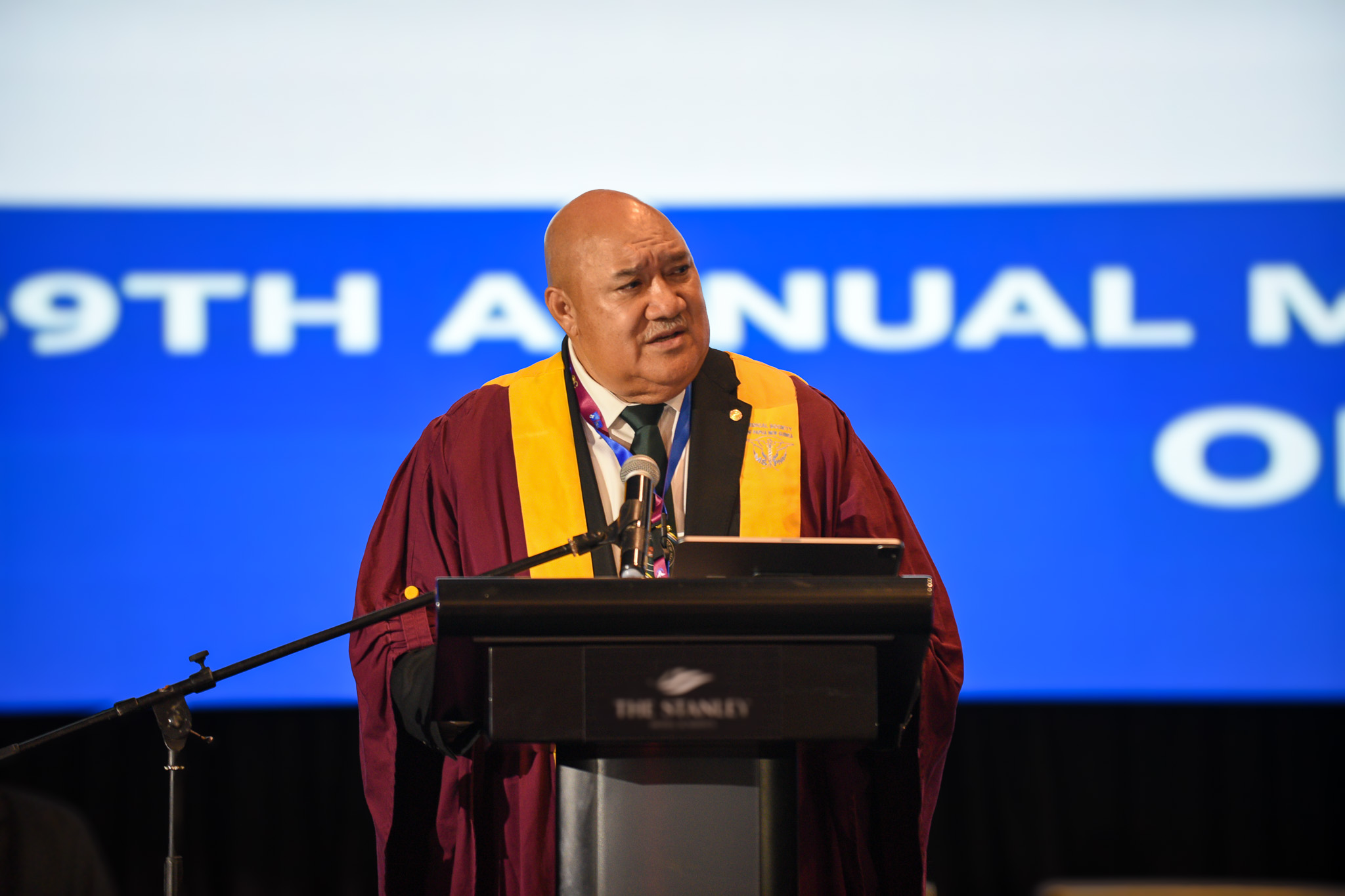Dr Saia Mau Piukala, WHO Regional Director for the Western Pacific, delivered the keynote address at the 59th Annual Medical Symposium held at the Stanley Hotel in Port Moresby. His remarks underscored the urgent need for coordinated action to end the ongoing polio outbreak and to advance the One Health agenda as a foundation for health security.
“We gather at a pivotal moment — not just for PNG, but for our entire Region. The world is shifting rapidly, and so are the threats we face. Pandemics, climate shocks, unsafe food, antimicrobial resistance— these are not isolated issues. They are deeply interconnected, and they demand a united response,” said Dr Piukala.
Held under the theme “One Health: A Unified Approach to Health Security,” the symposium brought together national and provincial leaders, health professionals, researchers, students, and development partners to explore the interconnectedness of human, animal, and environmental health. The event promoted a holistic, multisectoral strategy to address emerging health challenges.
In his keynote address, titled “One Health, One World: The Regional and Global Perspective,” Dr Piukala emphasized that the polio outbreak in Papua New Guinea serves as a stark reminder of the urgent need for unified, well-resourced action to safeguard health security. He called for strong political commitment and cross-sectoral collaboration—across human, animal, and environmental health—to protect every child and build a healthier, more resilient future for all.

“From SARS to Ebola, MERS to COVID-19, we’ve seen how fragile our health systems can be—and how vital it is to strengthen them through collaboration,” he said. “In the last 30 years, 75% of new infectious diseases have come from animals. In our Region alone, zoonotic diseases claim over 2.5 million lives each year.” Added Dr Piukala.
The Regional Director’s visit aimed to galvanize high-level support for accelerating immunization efforts, while reinforcing the critical role of community engagement and partnerships in the polio response. WHO continues to provide technical support on the ground, working hand-in-hand with health workers and local leaders to ensure that no child is left behind.
Dr Piukala highlighted the One Health approach as a critical framework for tackling interconnected health threats—from infectious diseases like polio to environmental and zoonotic risks—through collaboration across human, animal, and environmental health sectors.
“Papua New Guinea is demonstrating real leadership in advancing One Health. From developing a national coordination mechanism to conducting strategic risk assessments and planning its first Joint External Evaluation, PNG is showing how multisectoral collaboration can strengthen health security.” said Dr Piukala.
He also acknowledged the support of development partners including Australia, Japan, Korea, New Zealand, and others, noting that joint mechanisms and predictable financing are key to building resilient systems.
“Australia, New Zealand, GPEI and GAVI are supporting PNG’s polio outbreak response. And the DFAT–WHO–Health Department Partnership (2025–2028) marks a transformative step forward,” he said.
This engagement marked a significant milestone in WHO’s ongoing support to Papua New Guinea, as the country intensifies efforts to stop the Polio outbreak, strengthen health systems, and sustain high immunization coverage through a One Health lens.
“One Health, One World. Together, we can prevent future outbreaks, protect our communities, and build a healthier, more resilient future for all,” Dr Piukala concluded.
